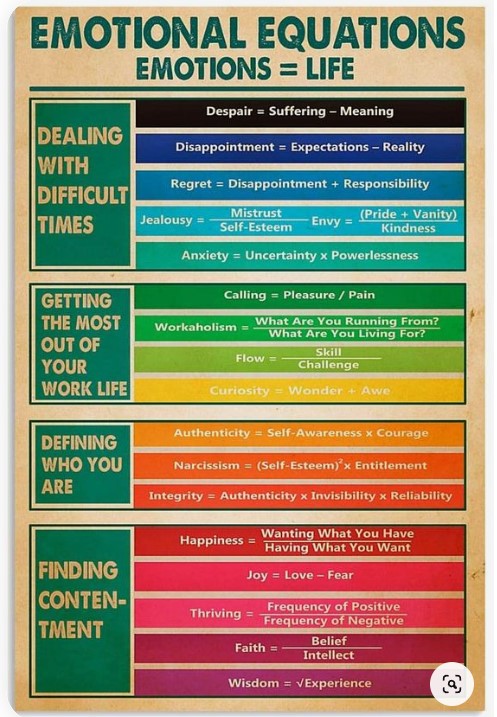

Have a lovely Sunday. Thanks for reading.

Thank you for reading today's post. Have an InterStellar Day! ~PrP


Have a lovely Sunday. Thanks for reading.

Thank you for reading today's post. Have an InterStellar Day! ~PrP
Comments are closed.

This a site where you can comment anonymously should you choose.
Please be considerate in your interaction with others.

This blog is set up for comments allowed only on the latest post. If you wish me to re-open a prior post so you can continue the discussion, use the language below. In this case, we are using the example of a past post that was entitled “The Social Dilemma“:
PrP r/o (and name of post you want reopened)
PrP r/o The Social Dilemma
I would then re-open the post and comments on the post “The Social Dilemma.”




 2011-2023 – This site is registered to PrismPrincess. I own the content of all submissions on my site. If you have any problems with the functioning of the site, or want to make suggestions, I don’t want to hear about them. Just kidding! Please use this link to contact PrP.
2011-2023 – This site is registered to PrismPrincess. I own the content of all submissions on my site. If you have any problems with the functioning of the site, or want to make suggestions, I don’t want to hear about them. Just kidding! Please use this link to contact PrP.

Did You Know?
Around 18-35 percent of the population is affected by “photic sneeze reflex” where an individual sneezes in reaction to bright light exposure. The mechanism of action is not well understood by researchers and due to how relatively harmless the condition is, there hasn’t been significant research into it.
Did You Know?
Mathematically, it’s possible for each area code in the United States to support a maximum of 8,000,000 telephone numbers. Practically, however, the number is slightly less than that (approximately 7,919,900 potential numbers) because of considerations like not assigning numbers that are similar to emergency and service numbers (i.e. there are no “(XXX) 911-XXXX” numbers).
Did You Know?
If you wanted to see all Seven Wonders of the Ancient World, there was a very brief window in which you could see them in all their glory—the Colossus of Rhodes was completed around 280 BC and destroyed in an earthquake in 226/225 BC, leaving a window of roughly 60 years when all Seven Wonders were intact.
Did You Know?
If you eat a diet rich in vegetables, then you’re eating a wide variety of plant parts. For example, when we eat asparagus we’re eating the stem of the plant, with carrots we eat the root, with corn we eat the seeds, with lettuce we eat the leaves, and with broccoli we eat the flower.
That’s neat
You Are Being Watched
EXPLORE PERSONAL SAFETY
No, you are not paranoid. Your apps and gadgets really are quietly monitoring what you do and say and where you go—and then they are sharing that information with people you’ve never met.
It’s the reality of modern technology …and it’s getting worse. If you’re thinking, I’m not at risk because I don’t fill my life with lots of tech, think again—some of these privacy risks are hidden inside seemingly safe items like your TV…and your privacy even can be endangered by the tech that your neighbors install.
If you’re wondering, Why would anyone bother to monitor me?, the answer is simple—your personal data can be turned into profit. The more companies learn about you, the more money they can make by tailoring their marketing efforts specifically to you or by selling that data to other companies.
But these privacy risks run much deeper than just advertising—if your personal data falls into the wrong hands, it could be used to scam you, stalk you or steal from you…and digital data does have an unfortunate habit of falling into the wrong hands.
Example: Last year, the personal information of more than 500 million Facebook users was posted online in a massive data leak. Hackers then were able to use that data to impersonate users and commit fraud, introducing a lot of financial stress and anxiety into victims’ lives.
You do have some protection if you live in California—by law, consumers there can see any data that a company has collected about them and/or insist that this data be deleted. A handful of other states—such as Virginia and Colorado—also have some online privacy protections in place, and a growing number of states are working to include privacy protection laws at the state level.
But for most of the country, consumers’ digital-privacy protections are limited. Companies that collect consumer data often allow customers to opt out of certain privacy intrusions—but most make it challenging to determine how to do that…and consumers who attempt to do so inevitably are warned that opting out will reduce the functionality of their app or tech device.
Among the modern tech and apps that could be putting your privacy at risk—and what to do to protect yourself…
Exercise equipment and wearable fitness trackers. The pandemic led millions of people to let their gym memberships lapse, and many discovered they preferred the privacy of exercising at home. Problem: Modern workout tech, such as from Peloton and SoulCycle, record data related to their users’ health and physical activities, information that can be sold, shared and used to send targeted ads. Example: If you don’t use your treadmill for a few weeks, you might start to receive ads for weight-loss products. Warning: Most makers of Internet-enabled exercise equipment exploit user data to some degree, but NordicTrack treadmill privacy protections are particularly weak.
Wearable fitness trackers pose an even greater privacy risk. These learn lots of extremely personal information about wearers, such as when and how much they sleep and when they feel stressed and relaxed. They even can learn women’s menstrual cycles and identify pregnancy very early—sometimes before women have shared the news with anyone else.
What to do: If you wear a fitness tracker, consider a Garmin product, such as Garmin Vívoactive (Garmin.com). Garmin has stronger, more responsible data-management policies than other major companies in this sector, though even its data security isn’t perfect. If you’re in the market for exercise equipment—a treadmill, a recumbent bike, etc.—the only truly private options are ones that don’t connect to the Internet or apps.
Home-security products and video doorbells. Smile—you’re probably on camera. The security cameras in stores and traffic cameras above roads are the tip of the iceberg—approximately one in five homes has digital home-security products and/or a video doorbell, and that figure is climbing. Even if you haven’t installed digital cameras on your own property, some of your neighbors likely have—and that can invade your privacy. A nearby home’s camera could record your comings and goings…who visits your home…what you do in your yard…and even what you do inside your home when you’re near a window. Video doorbells often include microphones, so this tech could record your private conversations. Even if your neighbors don’t use their digital security and doorbell cameras to spy on you, the footage from these devices usually is uploaded to the cloud where it’s vulnerable to hackers and government snooping.
What to do: If you want to install digital video security and/or a video doorbell but still prioritize privacy, select a system such as Eufy (EufyLife.com), which stores data on a device located on your property, not in the cloud, reducing the odds that anyone else will gain unauthorized access to it. If your neighbors install digital video security products, ask them to position these so that they do not record your property.
In some states, such as New York, you can file a civil case if you feel your privacy is being invaded by a neighbor’s smart camera. And in a recent case in the UK, a British man was fined $137,000 for privacy violations of his neighbor.
Also: Keep in mind that you’re probably being recorded whenever you’re near someone else’s home.
Mental health apps. Depression and anxiety rates rose dramatically during the pandemic, and a range of mental health apps promised help. Some of these apps walk users through behavioral therapy exercises…others offer mood-tracking digital journals, artificial intelligence (AI)–based therapy and guided meditation. But unlike information shared with professional therapists, the information gathered by these apps is not protected by doctor-patient privacy laws…and the companies that make these apps often take full advantage of that loophole, sharing this extremely sensitive data with third-party marketing firms and others. Exception: If you interact with a real-life therapist through an app, those interactions likely are protected by doctor-patient privacy laws just as if you’d met with that therapist in person.
What to do: If an app helps you through difficult times, it could be worth using—just be aware that you might be trading away a measure of privacy to do so. If that’s not a trade you’re willing to make, meet with a real-life therapist either in person or remotely. Or, if appropriate, contact the Suicide and Crisis Lifeline at 988—it’s free and confidential.
Voice-recognition tech including smart speakers, virtual assistants and AI call centers. You probably know that interactive “smart speakers” such as Amazon’s Alexa-enabled Echo Dot and Google’s Nest Mini learn a lot about their users—but you might assume that the data they accumulate is no different than what Amazon or Google learns when people use their websites to order products or access information. But there is a difference: When you interact verbally with modern tech, that tech isn’t just learning about you based on what you say…it’s also gleaning personal information from your voice. The AI at work in smart speakers and corporate AI-enabled call centers can figure out the speaker’s age, race, weight and even height with amazing speed and accuracy. That could affect how your call to a company’s help line is handled or what products the company tries to market to you. AI even can identify verbal clues pointing to certain health problems, including neurodegenerative diseases such as Alzheimer’s. It’s easy to imagine a hacker getting his hands on this information, then targeting people in the early stages of neurological decline for scams.
What to do: Don’t buy smart speakers or use other virtual-assistant–enabled devices unless you’re willing to accept that you might be sharing demographic and health details about yourself. Reach out to corporate customer service departments via online text chat rather than by phone if you’d prefer not to reveal details about yourself.
Video streaming. Virtually every modern TV is a “smart TV” capable of connecting to the Internet. If you have one of these, there’s a good chance it’s tracking what and when you watch, information that can be used to target you with ads. Example: If you watch a romantic comedy on a Friday evening, marketers might conclude that you’re single but want a relationship and start sending you ads for dating apps. Smart TVs aren’t just tracking the videos you stream on Netflix and other services—their “Automatic Content Recognition” (ACR) technology can track the shows and movies you watch on cable, over-the-air broadcast and DVD as well.
What to do: Disable data collection in your TV’s settings menu. If you can’t figure out how to do this on your TV—manufacturers don’t make this setting easy to find—enter “ACR” plus your TV’s brand name and/or model name into a search engine to find directions for turning off its ACR system.
Shift+Enter Is a Secret Shortcut Everyone Should Know
BENJ EDWARDS
The Enter key can mean several things based on context. It can produce a line feed and carriage return, or it can submit a form or text field. With Shift+Enter, you can often toggle between those two modes with ease. Here’s why—and how to use it.
Line Feed vs. Submit
If a web form or application defaults to submitting a text field when you hit Enter, then pressing Shift+Enter will usually let you create a line feed (moving the cursor to a new line) without submitting. That way, you can create multiple-line messages.
For example, on the Twitter website, you can use Shift+Enter to make a multi-line tweet. When you’re done, press Enter by itself, and your tweet will be sent.
An example of a multi-line tweet on the Twitter website.
The same thing works for apps such as Discord, Slack, and Teams. You can impress your friends by composing multi-line masterpieces, huge multi-paragraph diatribes, or whatever fits your fancy with Shift+Enter. Then when you’re ready to send, just hit plain old Enter.
What’s the Difference Between the “Enter” and “Return” Keys?
Interestingly, the reverse is often true. If the default behavior for an app or website is to create a line feed when you press Enter, then pressing Shift+Enter usually will submit the text field or form, similar to clicking a “Submit” button (Ctrl+Enter often does this as well). That way, you can quickly submit a form without having to move your hand away from the keyboard to click a “Submit” button with your mouse.
The reason why this behavior exists is due to a historical quirk: The Enter and Return keys originated in two different environments (submitting data on computers vs. creating a carriage return on electric typewriters), but they are often used interchangeably depending on the software. Early on, IBM developed a way to combine both functions into one key (labeled “Enter”) that could be toggled by using the Shift key. The standard stuck and has been adopted by many operating systems and applications ever since.
It’s Handy in Microsoft Word Too
In Microsoft Word, pressing Shift+Enter allows you to enter a plain line feed instead of a paragraph break, which can be useful if you’re doing special formatting on a document. We wouldn’t be surprised if Shift+Enter unlocks hidden functionality in other apps as well. Let us know if you find out!
Things to practice to surprise a narc/ scare them away:
It is good to practice the habit of avoidance and ignoring, which is helpful when dealing with toxic people.
If someone is condescending to you, tries to belittle or demean you… or triangulate you, don’t give any emotional response. Don’t let the (subtle) emotional jabs at your psyche affect you. Even if it does cause a rise out of you and your blood is boiling, don’t show it!
Practice and you will get good at this.
This way, you are not giving away your control…you are showing you cannot be controlled.
Another thing is, learn to feel comfortable enough in your self that you don’t need external validation.
Toxic people are experts at positioning themselves in your life in such a way as for you to start seeing them as ‘the light’. Don’t take the bait, otherwise you will fall into the trap of needing their validation for your own survival, at which point you are doomed! They will withhold the validation and at best give you occasional crumbs to get you begging for more validation…
Most importantly, and I cannot emphasize this enough, don’t show fear and don’t give the reactions they so much expect/ want from you.
Think of the Siege of Leningrad, the turning point of WW2 on the Eastern front. That was where the mentality of the war took a definite shift…
The Nazis had superior weapons, armour and skill. They knew that. They knew the Soviets knew that, and so expected the Soviets to cave in and give up & surrender. But… that never happened.
The Nazis could not believe their eyes — they would think “how could the Soviets not have surrendered? Any reasonable person would have? They see us exterminating their Army divisions one after another. They know we (the Nazis) are relentless, and they see what we have done to their wives, children, comrades… and they keep on fighting. They keep on fighting and maintain their stance, even though they know they cannot win. They keep on fighting in face of certain death”.
That’s how the Soviets eventually got the upper hand. They did not show fear. The Nazis were dumbfounded that the Soviets did not react as they expected. What happened next?
All the cooperative components (including mother-nature stepping in with an awful winter) eventually stepped in which ultimately led to the demise of the Nazis.
Ignore, avoid, don’t feel you want/ need any validation, don’t show fear and try not to be fearful, do not give emotional reactions they want and expect.
If you do that, the narc won’t touch you with a 40 foot pole.
Your definition of narc and mine differ. I understand a narc to be someone who tells on you and your behavior – usually for the police department.
JOKE:
A man is getting into the shower just as his wife is finishing up her shower when the doorbell rings.
The wife quickly wraps herself in a towel and runs downstairs.
When she opens the door, there stands Bob, the next-door neighbor.
Before she says a word, Bob says, “I’ll give you $800 to drop that towel.”
After thinking for a moment, the woman drops her towel and stands naked in front of Bob.
After a few seconds, Bob hands her $800 and leaves.
The woman wraps back up in the towel and goes back upstairs.
When she gets to the bathroom, her husband asks, “Who was that?”
“It was Bob the next-door neighbor,” she replies.
“Great,” the husband says, “did he say anything about the $800 he owes me?”
Joke
A PLANE IS ON ITS WAY TO TORONTO , WHEN A BLONDE IN ECONOMY CLASS GETS UP AND MOVES TO THE FIRST CLASS SECTION AND SITS DOWN.
THE FLIGHT ATTENDANT WATCHES HER DO THIS AND ASKS TO SEE HER TICKET.
SHE THEN TELLS THE BLONDE THAT SHE PAID FOR ECONOMY CLASS AND THAT SHE WILL HAVE TO SIT IN THE BACK.
THE BLONDE REPLIES, “I’M BLONDE, I’M BEAUTIFUL, I’M GOING TO TORONTO AND I’M STAYING RIGHT HERE.”
THE FLIGHT ATTENDANT GOES INTO THE COCKPIT AND TELLS THE PILOT AND THE CO-PILOT THAT THERE IS A BLONDE BIMBO SITTING IN FIRST CLASS, THAT BELONGS IN ECONOMY AND WON’T MOVE BACK TO HER SEAT.
THE CO-PILOT GOES BACK TO THE BLONDE AND TRIES TO EXPLAIN THAT BECAUSE SHE ONLY PAID FOR ECONOMY SHE WILL HAVE TO LEAVE AND RETURN TO HER SEAT.
THE BLONDE REPLIES, “I’M BLONDE, I’M BEAUTIFUL, I’M GOING TO TORONTO AND I’M STAYING RIGHT HERE.”
THE CO-PILOT TELLS THE PILOT THAT HE PROBABLY SHOULD HAVE THE POLICE WAITING WHEN THEY LAND TO ARREST THIS BLONDE WOMAN WHO WON’T LISTEN TO REASON.
THE PILOT SAYS, “YOU SAY SHE IS A BLONDE? I’LL
HANDLE THIS, I’M MARRIED TO A BLONDE. I SPEAK BLONDE.”
HE GOES BACK TO THE BLONDE AND WHISPERS IN HER EAR, AND SHE SAYS, “OH, I’M SORRY.” AND GETS UP AND GOES BACK TO HER SEAT IN ECONOMY.
THE FLIGHT ATTENDANT AND CO-PILOT ARE AMAZED AND ASKED HIM WHAT HE SAID TO MAKE HER MOVE WITHOUT ANY FUSS.
“I TOLD HER, ‘FIRST CLASS ISN’T GOING TO TORONTO.”
Recently I was on a date with a tall, handsome gentleman. He seemed like a nice enough guy- funny, engaging. He was telling me about his angry ex wife and his daughter who was upset about her nose job, but that wasn’t enough to put me off of him, immediately anyway.
After we got off the subject of his ex-wife, and while sipping on wine in a lovely restaurant, he started talking about how easy it was for him to make money because he was able to manipulate people into what he wanted them to do. He said it as though it was an admirable quality. I had to do a quick double take. I replayed what he said in my mind. I was so disappointed in that moment. I immediately thought, okay I am being manipulated right now! If I let myself keep seeing this handsome, fun, wealthy fellow I will be manipulated next.
The next day I thanked him for a lovely date but let him know we were not compatible. I never heard from him again.
You asked your CU for help with your human friend who has diabetes. Here is what we know about the disease.
For type 2 diabetes we know that the transport of glucose into the cell, mediated by insulin, is impaired (this is called “insulin resistance”) but exactly why the cell behaves in this way, by what mechanism this transport fails, is not well understood. “Insulin resistance” is a descriptive label that still leaves open the more important question of “why” does the cell and cell membrane behave in this way; until this question is answered our understanding is quite limited.
Type 1 diabetes is a different entity altogether and is associated with failure of the pancreas to create or release insulin. The cause is unknown but the current view is that it is likely to be due to an injury to the beta cell (the cell in the pancreas that produces insulin) by an infectious agent, either direct or immune related, the current hypothesis being that this is of viral origin.
The other night, I was sitting in my garage smoking a cigarette. Horrible habit, I know. 4 young men rushed me, decided they wanted my car, beat me up, and wanted my keys. I told them the keys were in the house.
They decided to go in. What they weren’t expecting were my 2 80lb Pit Bulls. They are sweethearts and the kindest dogs you’ll ever know but protect their home and owner with finesse.
My beautiful babies charged these assholes and stood over me as I lay on the floor of my garage, forever protecting me. They are rescues. Unwanted dogs. They saved my life. Please consider adopting a rescue. They might save your life too.
In February 1775, a Danish woman killed her four-month-old baby. When the authorities found her with the dead child, she said that she would gladly die for her crime.
Why did such a thing happen?
Because at that time, murder was more forgivable than suicide.
Crimes like this were part of a wave of suicide-murders in the 17th and 18th centuries .
This wave had swept across much of Europe, but in Denmark these strange crimes happened with particular frequency.
In the 18th century, there were one and a half suicide murders per 100,000 inhabitants in Copenhagen. In Stockholm, there were 0.6 to 0.8 cases per 100,000 citizens – and in Hamburg, 0.4 to 0.5.
Crazy as it may sound, people committed murders just to be executed. They found out beforehand exactly what crimes were punishable by death to make sure they would be killed.
At that time, suicide was not only a crime, but also meant that the soul was eternally condemned to hell.
Murderers, on the other hand, if they deeply repented of their crime, went straight to heaven And they were truly revered.
Martin Luther had interpreted the forgiveness of sins in this way. If someone repented at the last moment of his life, all would be forgiven and he would die pure and untainted by sin.
Potential suicides were afraid of killing themselves and therefore committed capital crimes punishable by death.
Unlike the suspected suicides, these murderers were completely open about their crime.
One man even sang on his way to the gallows because he was so happy he was about to die.
Eventually, the courts noticed that something was wrong and increased the sentence.
In Denmark, they began sentencing suicide murderers to an additional nine weeks of flogging before execution. When the day of execution arrived, the executioner would smash as many of the condemned’s bones as possible with a large wheel. Then the person was hanged from it until he finally died from his injuries. That’s how the military courts did it.
The civil courts were almost exactly brutal. Suicide murderers were maltreated several times with hot irons as they went to their execution. Their hands were chopped off first, and finally their heads. Then they put the body on a wheel and displayed it in front of the crowd.
This did not help to deter the delinquents.
The torment would secure their place in the kingdom of heaven all the more, it was believed. It was not until 1767 that Denmark was able to put a stop to this bizarre going by simply abolishing the death penalty for suicide murderers. They now had to work hard and humiliatingly for the rest of their lives and were whipped from time to time.
Other Protestant countries imitated Denmark. Not all of them, oddly enough. People tired of life still murder today to gain a death sentence that way. This happens again and again in the USA. Murderers voluntarily agree to their execution and even want to speed up the execution.
There are no statistics on this, but researchers assume that at least 20 of the more than 400 executed people since 1976 have murdered in order to commit suicide. A famous suicide murderer was Gary Gilmore. He was the first to be executed after the death penalty was reinstated. He fought with his lawyer to be killed by a firing squad.
“Let’s do it!” were his last words and they are still often quoted today.
Game of Thrones trivia:
What did actress Gemma Whelan say was horrible on ‘Game of Thrones’?
Actress describes sex scenes on ‘Game of Thrones’ as ‘crazy mess’ and says colleagues were allowed to do whatever they wanted:
Gemma Whelan revealed that the actors of ‘Game of Thrones didn’t have a good orientation from directors when shooting the sex scenes of the series.
The 40-year-old actress, who played bisexual character Yara Greyjoy in the fantasy drama production, detailed this film set dynamic in a new interview with The Guardian.
Asked about the show’s cast simply being left to “shoot a bullet” in front of the cameras, the artist said:
“[It was] almost literally that. They used to just say, ‘When we shout action, go ahead!’ and there could be some kind of crazy mess.”
I know someone who was on the set of Depp’s final Pirates movie—they said he was high as a kite and wasted throughout the filming. He was constantly late and extremely difficult to work with.
So don’t kid yourself into thinking it was just Heard who got him fired. That dude was out of his mind.
Actors are just like people and vulnerable to the same addictions and ego problems.
WWI and WWII should mean Whites Waring L, and Whites Waring again LL because the non whites in that disaster were merely collateral damage to the white men. But here’s a little trivia about it. No one is told that Hitler had a homosexual relationship with his lover Rudolf Hess during most of the war. They did have a bit of a falling out.
Here’s a tidbit:
Rudolf Hess was always obsessed with Hitler. Rudolf was a simple man, not motivated by money or power. There was only one thing that motivated him…Make Adolf Hitler happy. As the saying goes, it was a case of “love at first sight”. Hess met Hitler when he was giving a speech at an NSDAP rally in 1920. He was captivated by the Austrian and decided to dedicate his life to him.
Fast forward 13 years to 1933. Hitler has become chancellor and appoints his lover Hess as vice fuhrer (second in command). Everything went smoothly for the next six years.
Hitler went about his business; oppressing and killing the blacks and Jews, expanding the Reich, etc., and Hess, his lapdog, followed him everywhere and followed his every command.
But then the war came. Although Hess had been appointed to succeed Hitler after the invasion of Poland, Hitler appointed Hess’s former boss, Martin Bormann, as his personal secretary (a position previously held by Hess). And from this point on, Bormann began to take on more and more of Hess’s responsibilities.
Little by little, Bormann replaced Hess as Hitler’s right-hand man. Hess planned a grandiose operation to win back Hitler’s trust and be relevant and welcomed back into his arms.
In 1941, after many months of preparation, Hess traveled to Scotland in his personal plane, a Messerschmitt Bf 110. His intention was to negotiate peace with Great Britain.
The only problem was that Hitler had no idea that Hess was on the plane alone. The British intelligence ministry had intercepted the letters that Hess had sent to his contact in the UK. The contact had not responded to his letters, and Hess had no authority to initiate peace talks.
And as we can imagine, the absolute disaster arrived.
Hess’s plane was intercepted by British radar and three Spitfires were sent to shoot down the unidentified German plane. Although the Spitfires could not locate Hess’s plane (it was night and it was flying very low), he was forced to parachute because the plane had run out of fuel.
He fell in a field and a farmer took him to the Home Guard, the organization in charge of the defense of the United Kingdom. They bypassed the chain of command, and Hess went on to meet with Churchill and other top members of the British government.
However, he was considered unstable and his intentions were not taken seriously. He was briefly a prisoner in the Tower of London, but spent the rest of the war in a mansion guarded by 150 soldiers until 1945, when he was transferred to Germany, and charged with various crimes at the Nuremberg trials, sentenced to life imprisonment. .
When Hitler found out (through the letters Hess had sent him just before his departure), his anger was monumental. He considered that Hess had gone mad, and removed him from all his titles and obligations.
Hitler’s right-hand man flew to the UK in the middle of a war, without informing anyone to try to end the war individually. Damn crazy.
Interference by aliens isn’t always a bad thing. Take the case of rampant rape of women in South Africa:
Sexual violations, especially of men against women, have become an endemic problem in South Africa. Government agencies spent a lot of money on publicity campaigns and training to eradicate this problem, but year after year, the cases kept rising.
That is until a medical technician named “Sonette Ehlers” developed this product called “Rapex” after several abuse victims told her they wish they had a way to protect their private parts. A kind of tube that is completely safe on the outside, but inside it has pronounced spikes, sticking into the penis. Any man who tries to abuse a woman will find himself impaled and the only way to remove it is by going to the hospital. After this invention, rape cases have decreased, when before it seemed impossible.
Some critics say that this is a medieval punishment, but to medieval problems, medieval solutions, in my opinion.